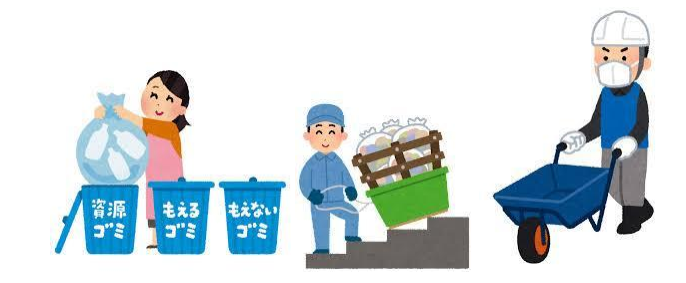


The first thing that stands out about Japan is cleanliness. Japan is known for being a very clean country, with streets, homes, offices and other places cleaned regularly and surroundings kept tidy most of the times. In this article we will explore, what are some reasons which helps in keeping Japan clean for most part, what are some procedures that are being employed for cleaning purposes and some cultural values associated with cleaning mindset.

In Japanese schools it is the norm to teach young students and kids the importance of cleanliness and hygiene and being responsible for the cleanliness of their surroundings. The cleaning of classrooms and school areas is performed by the students of the school. All the students are required to participate in cleaning activities and make their classroom spotless. This way Japanese students grown up to become responsible adults. They are aware of cleaning techniques and the importance of keeping the surroundings clean.

Another reason that makes the country clean is proper management of waste. Every individual is expected to deal with their waste according to proper rules and regulations. Before throwing out the waste, it is segregated according to the types of waste and then it is transferred for disposal and recycling.
Most households have at least three to four trash cans for segregating waste as per its type. For some it may be more tedious to segregate the waste properly than actual disposal, but it is all worth it as it keeps each locality clean.

In Japanese culture, people respect their spaces and surroundings and clean their spaces daily. For most people cleaning is not an occasional chore but a habit that they execute daily with discipline.
In traditional households all family members are expected to participate in daily cleaning. Also, many elderly people are seen sweeping areas surrounding their homes in the morning and picking up trash around their house. This helps in keeping the streets clean and beautiful.

As one can observe there are limited trash cans in public areas of Japan which makes one curious as how the country is still so clean. This is due to the cultural norm of personal responsibility in Japan. Everyone is expected to be responsible for their own waste management and disposal in the right place. It is considered very rude to throw trash on any place other than a trash can. That is why people hold on to their trash until they reach home and throw the trash in their trash can or find a suitable place outside that has trash cans available so that they can dispose of the trash properly.
This way, when trash reaches trash cans it can be disposed of for recycling and does not go unnoticed, making the country cleaner.

For many people, cleaning is not just a mundane task but an opportunity for pausing in life, meditation and self-reflection. Cleaning and decluttering help with clarity of mind and improves the overall mood.

Japanese culture is influenced by Shintoism and Buddhism due to which purity and harmony with nature is deeply rooted in the society. Shintoism considers cleaning and purifying as an important part of spiritual practice. It can be observed by rituals such as Misogi that involves purification through water.
Buddhism also introduced the concept that cleaning and tidying up is an essential spiritual practice and can be a method of meditation and self-reflection. That is why many monks would be seen cleaning the temples and Zen gardens.

Some philosophical concepts such as “mottainai” and concept of “wa” also play a role in shaping the mindset of the people.
Mottainai in Japanese means a feeling of disappointment or regret over a resource being wasted or not utilized to the fullest. This concept urges the people to utilize their resources wisely and “Reduce” consumption whenever possible. If the resource is no longer usable, “Reuse” for some other thing, and if the resource is not even reusable now then give it up for “Recycling”. Thus, the idea of mottainai also reinforces the idea of the 3 R’s of resource management.
The concept of wa refers to the harmony with nature and community. The concept of wa encourages people to seek harmony with nature and the people. By cleaning their surroundings people can bring about harmony with nature and by not littering the homes, offices and public places, one can bring about harmony with other people and the community.
With the technological advancement the cleaning techniques in Japan have also evolved. The use of vacuum cleaners has become very popular and is used in most households. Many public places in Japan uses high-tech toilet seats with built-in bidet and innovative designs for water conservation. These are some examples of how use of technology for cleaning makes the process of cleaning less time consuming and more efficient.
Cleaning in Japan is considered next to Godliness and is highly important thing to do on the daily basis. Littering is heavily looked down upon and most people adhere to their principles of keeping harmony with nature and society by keeping their surroundings clean. Children are taught from a young age to clean and not litter their surroundings.
Thank you for reading!
For learn more about Japan and Japanese language, checkout our YouTube channel Nihongomax and our website Nihongomax.